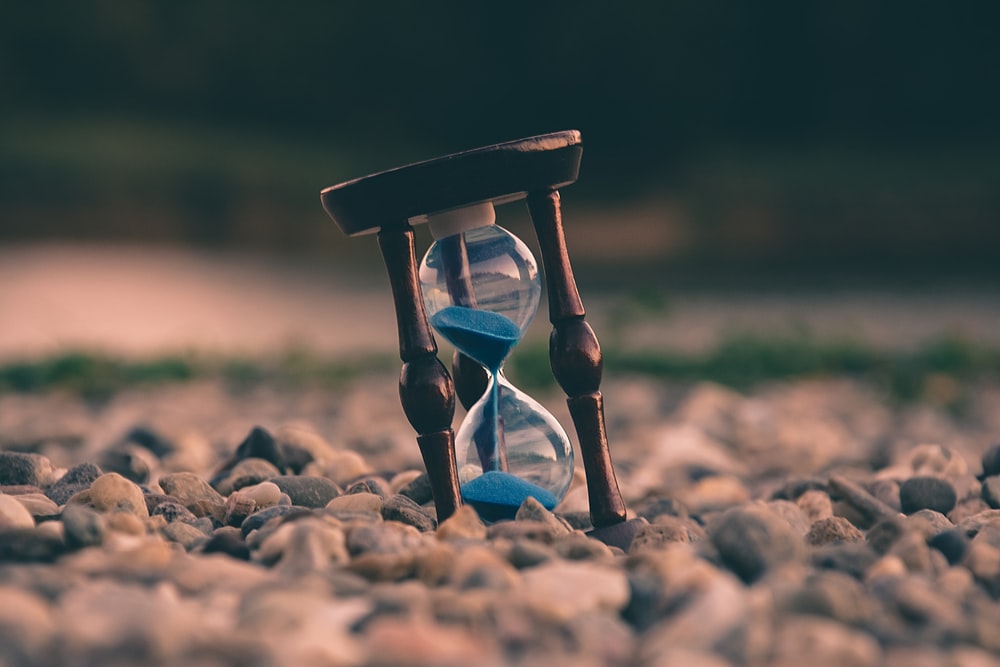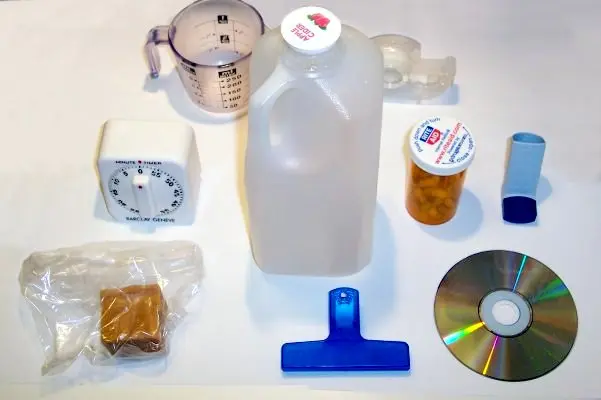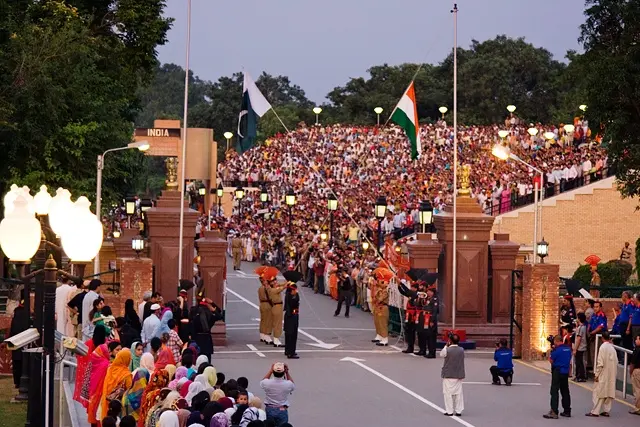Time Perception: How to Make Time Pass More Slowly

As we age, time seems to fly by faster than ever before, leaving us feeling like we’re constantly chasing after it.
The holiday season we just had feels like it was only yesterday, and even events from decades ago can feel like they happened just a short while ago. But despite our desire to slow down time, it seems that time is deeply rooted in our bodies.
Our circadian rhythm, which regulates our sleep and wake cycles, can persist even in isolation, and every cell in our body has its own internal clock. Some scientists have even created a biological clock to study this phenomenon. However, our perception of time plays a crucial role in how we experience the world around us, and understanding this perception can help us make the most of our time.
Enjoy the present
You might have heard this before:
“Time that you enjoy wasting, is not wasted tim
John Lennone"
In the hustle and bustle of daily life, it’s easy to let time slip away from us. However, being present in the moment can help us slow down and make the most of our time.
According to Fuschia Sirois, a psychology professor at The University of Sheffield, being fully present in the moment means paying attention to the experiences that are occurring in real time. This can be anything from listening intently to someone’s story to noticing the environmental details around you.
Research has shown that meditation can improve our perception of time, and those who practice mindfulness feel like time lasts longer than those who don’t. Sirois notes that being more mindful can help us recognize the meaningfulness of our experiences, fostering positive feelings and expansive mindsets that merge our perceptions of the past, present, and future, making the present feel fuller and less fleeting.
So take a deep breath, be present in the moment, and savor each experience as it comes. It may just help you slow down time and make the most of every moment.
New novelty & new experiences
According to David Eagleman, a neuroscientist at Stanford University, seeking novelty is the ultimate way to slow down time. This is because the brain remembers new experiences more vividly, making them feel longer in retrospect. For instance, a trip to a new place feels longer than the return journey. To extend the perception of time, one should continuously challenge themselves to learn new things or even create the illusion of newness, like rearranging one’s workspace.
Research conducted in the Netherlands suggests that experiencing novelty enhances our perception of time. Conversely, during the COVID-19 lockdown, time appeared to pass more quickly because of the lack of new experiences, causing everything to blend into a single, indistinct memory.
Push the boundaries of your mind, Challenge yourself
Selmer Bringsjord, a professor of logic and philosophy and director of the Rensselaer Artificial Intelligence and Reasoning Laboratory, suggests that engaging in difficult problem-solving activities can make your days seem longer. These types of problems are known in mathematical computer science as “EXPTIME problems,” which demand exponential time relative to the size of their inputs.
Bringsjord compares closely studying NFL games, stats, and making predictions to playing an EXPTIME game, which he finds enjoyable. If you want to try this strategy, you can play games like chess, checkers, or Go, all of which are also EXPTIME games, to slow down time.
Focus on one thing at a time
According to cognitive neuroscientist Caroline Leaf, multitasking is a myth, and it can actually harm your productivity and time perception. When we switch between tasks quickly, we fail to focus on any of them properly. Leaf warns that multitasking can create a “tsunami energy effect” in the brain and distort our perception of time.
A study conducted by researchers from the University of Illinois and the University of Wisconsin showed that participants who watched commercials while carrying out other tasks felt that time passed more quickly than those who just focused on the commercials. While multitasking may seem like a way to kill time, it can actually hinder your efforts to slow down and take control of your pace.
Say no, or at least, don’t always say yes
In today’s fast-paced world, it’s easy to get overwhelmed and feel like time is slipping away from us. However, according to Carol Kaufman-Scarborough, a business professor at Rutgers University, there’s a simple solution: don’t always say yes. By being intentional with our time and limiting the number of appointments and social events we commit to each week, we can regain a sense of control and slow down our perception of time.
Research by the University of Pennsylvania supports this idea, showing that stress from having too much on our plates can distort our perception of time, especially when it comes to work and burnout. But the good news is that by reducing our commitments and saying no to some things, we can remove this variable and feel more in control of our time. So, if you want to slow down and savor each moment, it’s time to start prioritizing and setting boundaries.
Hold your breath, rest, and let your mind wander
According to Catherine Cook-Cottone, a mindfulness researcher at the State University of New York at Buffalo, living in a constant state of reaction mode can make time feel like it’s slipping away from us, leaving us feeling like we have no control over it. This can result in time seeming fleeting and unconstructive. However, when we slow down and create spaciousness in our lives, time slows down too, making us feel more in control.
One way to create this space is to practice daydreaming or reflection for a few minutes each day. This type of mind-wandering can help stimulate the default mode network in the brain, which is the state we enter when we’re not actively engaged in a task. It essentially resets the brain and helps bring more perspective to how we feel and perceive time.
Author of Hyperfocus, Chris Bailey, took this idea to the extreme with his “one month of boredom” challenge, where he intentionally did something bland for an hour every day, like waiting on hold or reading terms and conditions. But you don’t have to go that far to slow down time. Simply resting and allowing your mind to wander can bring your brain back to that default mode and give you the power to take control of time.
Fly at warp speed like a sci-fi hero
Have you ever wondered if traveling at breakneck speed would affect your perception of time? According to Richard Arthur, a philosophy professor at McMaster University, “This will not affect your perception of time’s passing, except that when you reconvene with others who have not been traveling at a significant fraction of the speed of light you will find that they are actually older: more years will for them have passed, and the trees will have more rings.”
While it may not affect your subjective sense of time, studies have shown that time actually passes differently in space. In fact, NASA studied twin astronauts, Scott and Mark Kelly, to investigate how radiation, microgravity, and confinement during space travel affect the passing of time for the human body. After 340 days in space, Scott aged just a little more slowly than his brother Mark, who stayed on Earth. So, if you ever find yourself traveling at the speed of light, don’t be surprised if you come back to find that time has passed differently for those who stayed behind.
Making good memories
Making good memories is an essential way to slow down time. By intentionally capturing details and creating mental snapshots of those moments, we can savor our experiences for a lifetime. As Catherine Cook-Cottone, a mindfulness researcher at the State University of New York at Buffalo, suggests, “Time, when slowed, is spacious.”
However, creating memories that last takes practice, and it might mean refraining from taking photos. Studies from the University of California and elsewhere have shown that relying too heavily on photographs could negatively impact our memory of an experience. Instead, we should focus on building mental images of our experiences to stretch a 10-minute experience into 10 years or even a lifetime.
According to researchers at Northwestern University, our brains can store up to 2.5 petabytes of data, which is more than 300 years of Netflix. So, even without photographs, we have the capacity to remember and savor our experiences for a long time. As long as we make the effort to capture the details and create vivid mental snapshots, we can slow down time and enjoy the memories for years to come.





